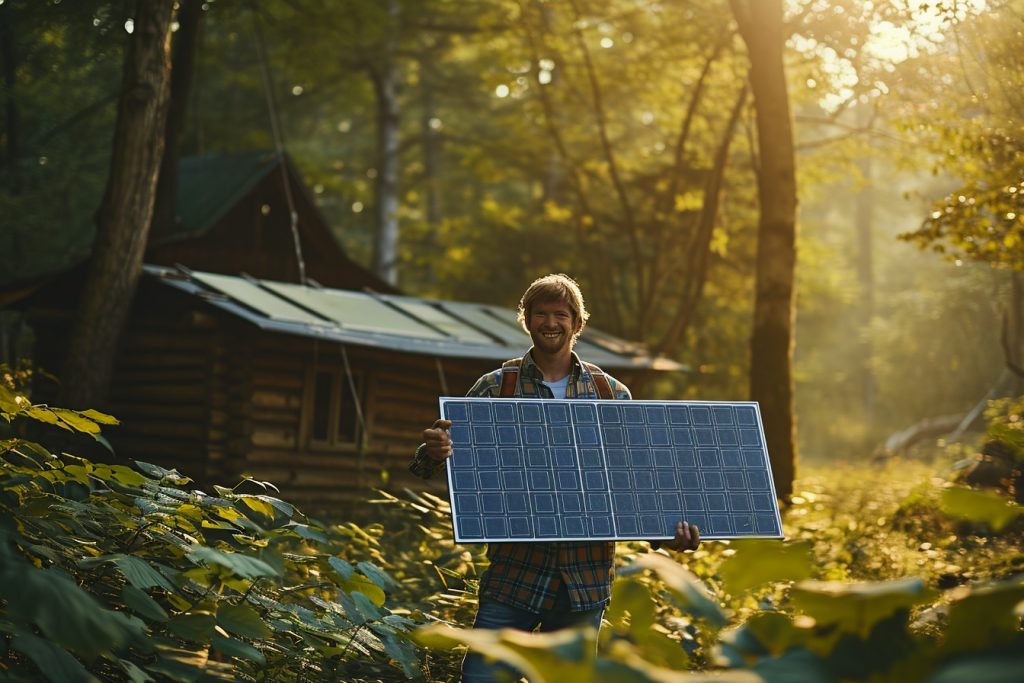In an increasingly connected world, the idea of living off-grid can seem like a refreshing escape from the hustle and bustle of modern life. It’s not just about sustainability or self-sufficiency; going off-grid offers a deeper connection with nature and a chance to reset our internal pace to one that’s more in harmony with the world around us. However, thrifting away from the grid isn’t just a spontaneous leap – it requires careful planning, a resilient mindset, and a different approach to daily living. Let’s explore some handy tips that will help you not just survive, but thrive in an off-grid lifestyle!
Embracing the Off-Grid Mindset: Start Here!
The journey to a successful off-grid life starts in the mind. It’s crucial to adjust your expectations and prepare for a significant lifestyle shift. Embracing an off-grid mindset means accepting that convenience is no longer king; instead, resourcefulness and patience reign supreme. It’s about understanding the value of slowing down, appreciating the basics, and recognizing the satisfaction that comes from self-reliance. Start by assessing why you want to go off-grid and what you hope to achieve – this vision will be your anchor when challenges arise.
Part of this mental shift includes a willingness to learn and adapt. Off-grid living often involves troubleshooting and repairing things yourself, upskilling in areas you might never have considered before, and becoming a jack-of-all-trades. Prepare to immerse yourself in a wide range of skills, from gardening and woodworking to renewable energy management. The more open you are to acquiring new knowledge and abilities, the smoother your transition to an off-grid lifestyle will be.
Tools & Tech: Off-Grid Essentials
Even though you’re stepping away from the mainstream, certain tools and technologies are non-negotiable for a successful off-grid life. Reliable energy sources, like solar panels or wind turbines, are critical for electricity. Invest in a quality system that fits your needs and environmental conditions. Additionally, consider having backup generators or batteries for those cloudy or still days. Water is another vital resource; set up a rainwater harvesting system, dig a well, or find a natural water source, and don’t forget to include a robust filtration and purification process.
While high-tech gadgets aren’t the essence of off-grid living, a few carefully chosen pieces of tech can make life much more comfortable. Energy-efficient appliances, LED lighting, and smart water pumps can significantly reduce your energy and resource consumption. Communication tools are also important – think about a satellite phone or a ham radio for emergencies. And let’s not forget the importance of simple, durable hand tools that don’t rely on electricity; from gardening equipment to a reliable axe, these will be some of your most prized possessions.
Building Sustainable Habits that Last
To make your off-grid life not just viable but enjoyable in the long term, you’ll need to develop sustainable habits. This means organizing your day around natural cycles – waking with the sun, conserving energy during peak usage times, and using natural light as much as possible. Plan your tasks to coincide with the most appropriate times of the year, such as planting and harvesting crops, or cutting and storing firewood. This rhythmic approach to life not only saves energy but also establishes a deep connection with the environment.
Another core habit is waste reduction. Living off-grid often highlights the value of every resource. Learn to reuse, repurpose, and recycle everything you can. Composting food scraps, repairing and mending clothes and tools, and using biodegradable products are all part of the sustainable off-grid routine. It’s a continuous process of mindful consumption, where you’ll gradually find yourself becoming an expert at making the most of what you have, decreasing your environmental footprint, and relishing the simplicity of off-grid living.
Going off-grid is both a challenge and an adventure, and with the right mindset, tools, and habits, it can be an incredibly rewarding experience. Remember that it’s not about denying yourself modern comforts, but redefining what those comforts mean to you in a more natural and self-sufficient setting. Off-grid living isn’t just a residence away from the power grid; it’s an entirely different way of life that brings you closer to your roots and teaches you the true value of independence. Start with a solid plan, equip yourself with knowledge and the right gear, and build habits that ensure your off-grid life is sustainable and joyous. Here’s to a life less ordinary, closer to the rhythms of nature, and rich with the fruits of your own labor. Welcome to the off-grid journey!









